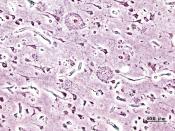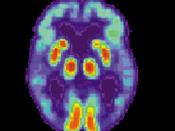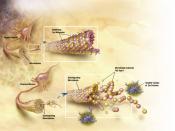Aging � PAGE \* MERGEFORMAT �1�
Aging and Alzheimer's Disease
Nearly 10 million population of the United Kingdom is 65 years old or above, and approximately 1.3 million population is 85 years or more (Davies, 2010, 52). Moreover, according to researchers these figures will raise to more than 50% in upcoming twenty-five years (Gilhooly and McDonach, 2006, 437). This fast increase in the population of elderly, to some extent, indicates the advancement of medical care and superior health condition. Even so, ageing is considered to be very much related with worsening of health that serves as a challenge for the NHS.
When all people wish to live longer years with excellent health, more than half population of aged sixty or above complain of having one or more enduring chronic conditions, meaning nearly 3.9 million population of elderly suffers with chronic health prorblems. If no steps will be taken to avoid age-related diseases, we will have nearly six million individuals with chronic poor health or disability by year 2030.
According to Statistics, in upcoming years requirement of care will be more desirable and for longer periods. Medical and nursing staffs and professionals are already under immense pressure to make high quality services available for the individuals having just a single or more chronic health problems (Gillespie, 2004, 653). These demands will augment with the passage of time and it is essentially needed to train nurses relevant knowledge and skills to cope with such requirements.
Ageing is an unavoidable and uncontrollable natural phenomenon, which is often linked with illness, it has been accepted that this link is extremely complex. (Graham, Logan, Harrison, Straus, Tetroe, Caswell and Robinson, 2006, 24) Ageing is not solely responsible for illnesses, but illnesses are more associated with the amount of exposure of individuals with disease-causing carcinogens. Hence,


